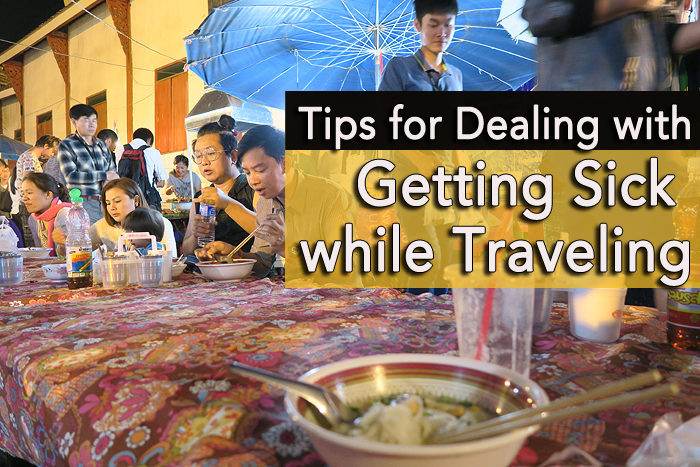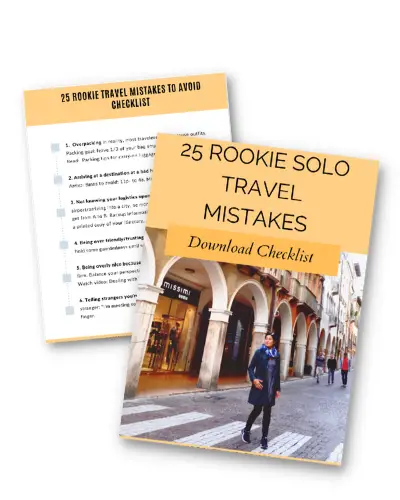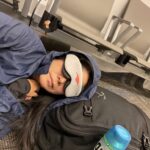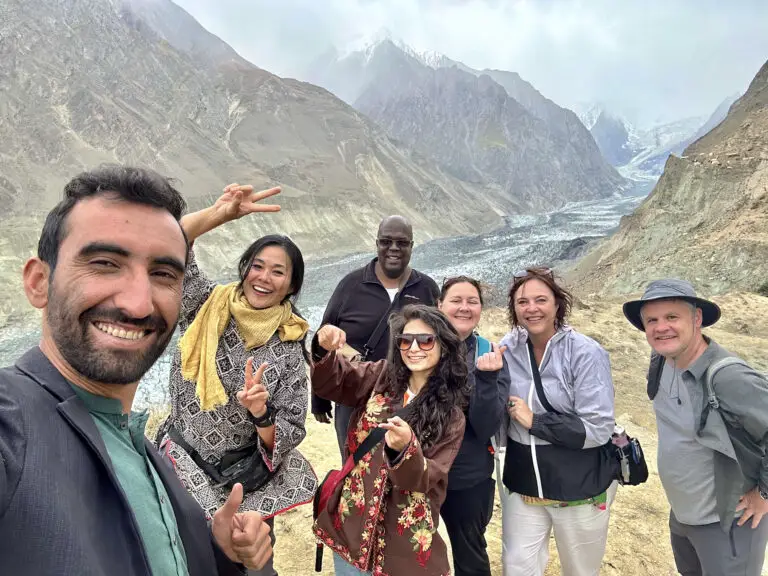Last Updated on January 8, 2024 by Christine Kaaloa

If you’ve followed my latest travel vlogs, you’ll know I got sick in Thailand from bad food. For a solo traveler, getting sick while traveling is never fun. But it doesn’t have to turn into hysterics. Don’t worry, you’ll survive.
This is the second time i’ve gotten sick (I got sick in India too), so I treated it like a serious cold and went through the steps to get a clean bill of health.
Getting sick while traveling: What should you do?
Table of Contents: Dealing with Getting Sick while Traveling Abroad
As a solo traveler, getting sick abroad is one of my worst imagined fears. Until I actually get sick and are forced to deal with that fear. So far, I’ve found that while dealing with it is uncomfortable, it’s still do-able. Here’s some basic tips if you find yourself not feeling well:
Take an antidiarrheal medicine first
It’s advised you hold off on taking antibiotics until you know you’ve got a bug. Doctors recommend taking antidiarrheal medicine first and see if your case doesn’t clear up.
Go to the nearest doctor, pharmacy or hospital
In my case, diarrhea is not the problem and something feels very wrong. I feel nauceous and like I’m going to faint. Parts of my body are numb. I take myself to the doctor (in Thailand, it’s the hospital). They do tests and diagnose it as a strange parasite of some sort. They give me some shot in the butt and Cipro is recommended.
In places like Thailand and India, some local or country pharmacists are the closest things to a doctor and can do consultations and prescribe medicinal relief. Many have have basic support like oral rehydration salts, anti-diarrheal medicine, anti-nausea/vomiting, fever/cold tablets and depending on the country, travel bug antibiotics like Cipro. The costs are much lower than hospital pharmacies, so if you get a hospital prescription, I’d buy it at the local pharmacy.
Take the meds
The antibiotics (commonly, Cipro or Azithromycyn ) are strong. They both do the same thing in killing bad bacteria but each is more or less effective with certain strains of bug virus (sorry, that’s the best I could come up with). It kills all stomach bacteria, even the good ones that your stomach needs to digest foods. This is why doctors recommend taking it as the last choice.
Let people know you’re sick
Let hotel managers and fellow travelers know you’re sick. I might even go as far as asking them to keep tabs on you. I was recommended to the Chiang Mai Ram Hospital, a purported international hospital. Although I think seeing a good international doctor there is hit-or-miss, it got me through the door of tackling my big, bad bug.
Rebuild your stomach with probiotics
After taking your strong meds, your stomach is eradicated of both, good and bad bacteria. Your stomach is stripped; as a result, it’s likely your stomach will feel “off”. You need to put that good bacteria back and it can be restored through probiotics. Probiotics is great for those with stomach and urinary problems and comes naturally by way of real local fermentable yogurt. If I can’t find yogurt, then I go to the pharmacist and ask for probiotic tablets.
Slow down your eating habits
Getting sick while traveling forces me to slow and be conscious of my eating habits. Finding foods I can or want to eat, at this point eat is a challenge. Don’t force yourself to eat large portions of food. Focus on small snacks and crackers. Sometimes, not being hungry is your body’s way of using that energy towards healing.
Foods to avoid when you’re sick
When sick with a stomach bug (and while taking antibiotics), I learned there were a few foods to avoid: greasy/oily, fatty, acidic and spicy. No caffeine and nothing carbonated. Best to just seek out bland foods to be safe.
Recommended Foods when you’re sick
This is not a comprehensive list of foods you can eat. It’s always best to consult your travel doctor. But based on my experience and what’s been recommended to me, here’s some simple rules of thumb:
– Simple carbohydrates, like rice porridge and plain noodles with broth.
– Simple broths for potassium and electrolytes
– Probiotic products like yogurt, yogurt milk (you can even see if the pharmacy has lactobacillus pills!)
– Charcoal tablets (They help with detoxification of any toxins in your body. Do not take them close to the time you take your antibiotics as it will undo all the good your antibiotics do)
– Simple sugars and not a lot of acid like warm tea with sugar.
– Remember BRAT: Banana, rice, apples, toast.
– Lots of water.
Watch my ‘I GOT SICK in Thailand’ Taste Test Challenge (Not seeing the video, click here)
Pre-Trip Preventative Planning
Travel Insurance
Travel insurance is always recommended. World Nomads Travel Insurance is made for travelers and backpackers. They cover up to at risk activities like skiing, mountain climbing etc.. and travel theft. Costs are based on destination, country you’re from and time frame of coverage. As an American, they’re the best cost-effective option.
I ran into a female solo traveler (in her sixties), who warned me about avoiding mosquitoes, due to the fact she battled Dengue Fever on her last trip. Ironically, two days later, she came down with her second bout of Dengue (the second time can be life-threatening)! I hope she had travel insurance. Although her condition is more the exception than the rule, the potential dangers of her illness can be severe.
Visit your travel doctor
A pre-trip visit to my travel doctor is my travel regimen. I tell my doctor what countries I’m traveling, regions I’ll be in and how long and my doctor tells me what shots or medication I might want to take for prevention.
Get your travel shots
I take travel shots and vaccines very seriously and often get what I think I’ll need. Vaccinations recommendations vary based on your exposure to certain regions and the type of travel you do- i.e. if planning to only stay in urban environments versus trekking in the mountains. I’ve gotten most of the common travel vaccinations, as some viruses can be dangerous or lifetime. While vaccinations won’t keep you from experiencing food poisoning or catching a cold, they’ll help prevent something potentially worse. Common vaccines I’ve gotten :
- Hepatitus A (because I was moving to Korea and I love street food & bathhouses) It is two shots, given 6 months apart.
- Hepatitis B
- Dengue Fever
- Typhoid fever
- Meningococcal disease
- Rabies (I knew I’d be traveling rural areas or areas with stray dogs and monkeys)
- Japanese Encephalitis (vaccine for a mosquito born virus, which I got for living in Korea)
Research medical tourism in the country you’re traveling
Research your medical tourism options. Some counties have inexpensive medical facilities (and they’re known for being as good if not better than the west). So far, I’ve gone to doctors and dentists in South Korea, Thailand and India. They’re also equipped with handling common viruses their country is prone to. A list of countries for medical tourism here.
As I mentioned earlier, depending upon country, the local pharmacy can be stocked pretty well with basics, so if you’ve forgotten to buy something like anti-diarrheal medicine, you can easily get it when you’re in that country.
Ever get sick abroad? What are your tips for dealing with getting sick while traveling?
Looking for travel insurance?
American travelers often pay a premium on travel insurance. World Nomads offers economic solutions for travelers who seek security and peace of mind. It covers 150 countries.

















